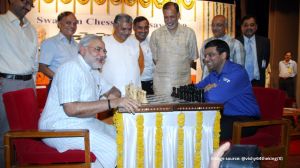The Life & Mimes of Ms Costello
The last time we met Elizabeth Costello, she was fragmenting. Veteran of theseminar-literary-awards circuit, aging writer held in high regar...

The last time we met Elizabeth Costello, she was fragmenting. Veteran of theseminar-literary-awards circuit, aging writer held in high regard by academia especially for House on Eccles Street, a re-imagining of Ulysses, fervent animal rights activist, she was allegorically seated outside a gate. Asked to explain herself and her life, she was sinking into a quicksand of possible reasons for being: “I am a writer, a trader in fictions.” “I maintain beliefs only provisionally.” “I am a secretary of the invisible.”
By the time we meet her again, a novel later, Elizabeth has—remarkably, mysteriously —gathered herself together and is grounded in a simple synopsis of her mission: “You may not see the point of it,” she says, “the pursuit of intuitions, but this is what I do. This is how I have built my life: by following up intuitions, including those I cannot at first make sense of. Above all those I cannot at first make sense of.”
In Slow Man, his first novel written after receiving the Nobel prize for literature in 2003, JM Coetzee springs a surprise: he appears to return to an earlier plot-line. He’s not done that before. Hailed by the Nobel academy for being a scrupulous doubter, for being “ruthless in his criticism of the cruel rationalism and cosmetic morality of western civilisation”, he has never lingered at a subject. His conscientiousinterrogations have, for instance, taken him from critiques of apartheid to a cutting inquiry into the aftermath of its dismantling (Disgrace). He is a master deployer of irony, and his fiction does not suffer gladly readers who’d have the world comfortably separated into good and evil. He, most of all, carries his story a long way from the reader’s initial expectations.
So it is with Slow Man. It opens with Paul Rayment, a sixtysomething former photographer and diligent, sometimes self-righteous collector of old and rare stills, being tossed off his bicycle by a speeding vehicle. It picks up an unsettling atmosphere when he returns to his upmarket Adelaide apartment, with a leg amputated and a newly acquired awareness of lurking mortality, that he may never be whole again. Given over to care-givers for routine chores, he finds his sense of self being chipped away. What has his life amounted to? Has he wasted time? Or is he being wasted by time?
Into this extended family in the making arrives Elizabeth Costello, unannounced and uninvited and fully informed about his predicament and the back stories of all the Croatians in his life. She bases herself in Paul’s home and dives into advising him on how to proceed with his life. Paul, in fact, has only a vague recollection of who she is. (“Elizabeth Costello: it is coming back to him who she is. He tried once to read a book by her, a novel, but gave up on it, it did not hold his attention. Now and then he has come across articles by her in the press, about ecology or animal rights, which he passes over because the subjects do not interest him… grey-haired, grey-faced too, with, as she says, a bad heart. Breathing fast. And here she is preaching to him, telling him how to run his life!”)
|
Old age has for many novels been an unsettling condition for Coetzee’s characters. If there’s anything disconcerting in this novel that returns him to his old form, it is the unfolding of its life-affirming tenor
|
What does she want? Is she researching another book? Is that why she demands that he recount the story of his past, his childhood in France, his move to Australia, his passion for finding history in this supposedly new country?
For Coetzee, the present is always another country that must be relentlessly explored. That country, in this novel that returns him to his old form, is alternatively old age and Australia itself. Old age has for many novels now been an unsettling condition for Coetzee’s characters. Here both are made sense of by Paul, chaperoned by Elizabeth (her recovery from the helplessness of Elizabeth Costello will remain an unexplained, though deliciously secretive aside between author and reader). If there is anything disconcerting in this gem of a novel, it is the unfolding of its life-affirming tenor.
Photos



- 01
- 02
- 03
- 04
- 05




























